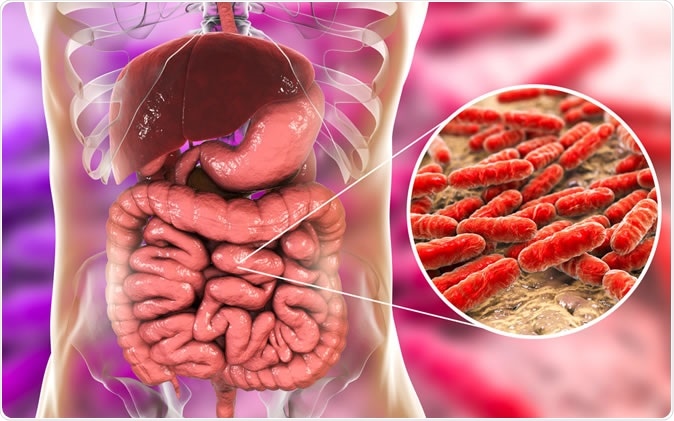Probiotics or good bacteria have shown promise in the potential to maintain a healthy gut. Many studies have provided evidence on the health benefits of probiotics. Now, the popular philanthropist and co-founder of Microsoft, Bill Gates said he believes probiotics could help stem malnutrition over the next two decades.

Normal flora of small intestine, bacteria Lactobacillus, Probiotic bacterium - Illustration Image Credit: Kateryna Kon / Shutterstock
He predicted that malnutrition could be curbed, and in turn, scientists will be able to reduce the number of nutrition-related deaths worldwide. With malnutrition solved, other health issues such as asthma, allergies, and other autoimmune diseases will follow.
“I get asked a lot what I would choose if I could only solve one problem. My answer is always malnutrition. It’s the greatest health inequity in the world. Period. By solving malnutrition, we can fix one of the biggest contributors to inequity,” Gates explained.
He said he believes that probiotics could help solve malnutrition, explaining that a deeper understanding of the human microbiome is important.
Further, Gates explained that without proper nutrition in the first three years of life, children won’t develop properly physically and mentally. He further said that in the past, there are two types of malnutrition – one caused by infection and the other due to lack of nutrients. These two types are well understood, but the third one is puzzling.
Hence, he wants to further understand the other cause of malnutrition, which has something to do with an imbalance in the gut. Children who suffer from starvation may continue to struggle even when their diet returns to normal. He insists that the solution to the problem is to understand the gut microbiome, and with this, scientists can formulate and engineer new interventions to fix the imbalance.
Probiotic pills in the future can help battle not only malnutrition but also other conditions, including asthma, obesity, autoimmune diseases, and allergies, among others. With new studies hinting the health benefits of probiotics, Gates believe they are the key ingredients that can make new pills to solve malnutrition, especially in third world countries where hunger and starvation are rampant.
“Over and under-nutrition are two sides of the same coin. If we can figure nutrition out – and I believe we will within the next two decades – we’ll save millions of lives and improve even more,” he said.
Probiotics are live bacteria and yeasts that have been proven to provide health benefits, especially in the gut. They are usually found in food such as yogurt and drinks. However, they are mostly taken as supplements.
But, over the past years, even with the popularity of probiotics, they have still considered food products, and not as medicines since they’re not tested in the same way as medical drugs are.
Probiotic bacteria have become increasingly famous during the last two decades, due to expanding scientific information pointing to their benefits to health. They have a variety of effects on the human body, such as maintaining a healthy community of microorganisms to regulate homeostasis and balance, producing substances that have desirable effects on the health, and boosting the body’s immune response.
The World Health Organization (WHO) reports that about 6.2 million children and adolescents below 15 years old had died in 2018 due to common childhood diseases. More than half of the deaths could be prevented with simple and affordable interventions, including adequate nutrition, and safe water and food.
The African Child Policy Form found that in 2018 alone, 60 million children in Africa had stunted growth. Also, about 90 percent of all African children are malnourished or undernourished. Also, about 60 percent of children do not meet the minimum meal frequency threshold.